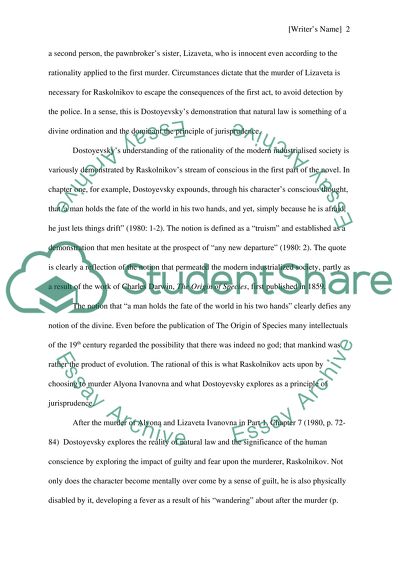Dostoyevskys novel Crime and Punishment Essay Example | Topics and Well Written Essays - 750 words. Retrieved from https://studentshare.org/literature/1499059-dostoyevskys-novel-crime-and-punishment
Dostoyevskys Novel Crime and Punishment Essay Example | Topics and Well Written Essays - 750 Words. https://studentshare.org/literature/1499059-dostoyevskys-novel-crime-and-punishment.


